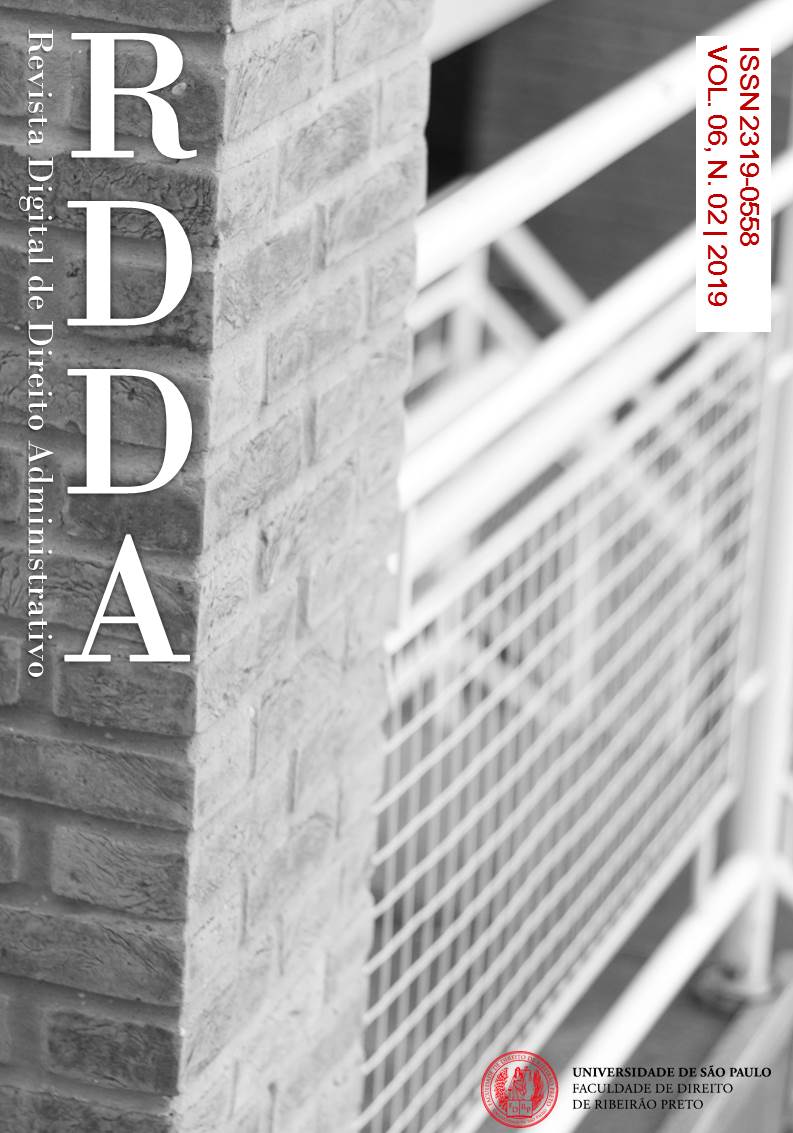As agências reguladoras e a arbitragem:
uma alternativa às divergências setoriais
DOI:
https://doi.org/10.11606/issn.2319-0558.v6i2p71-94Palabras clave:
Direito da Regulação, Agências reguladoras, Poder normativo, Arbitragem, Administração PúblicaResumen
Um dos principais fatores de estímulo aos investidores a assumirem novos riscos, atraindo aporte de recursos necessários ao desenvolvimento dos setores regulados, consiste na possibilidade de se resolverem, com celeridade e eficácia, eventuais litígios decorrentes dessas atividades. O Poder Judiciário, imerso em demandas, não é atualmente capaz de oferecer a prestação jurisdicional no tempo necessário, sobretudo quando a questão envolve setores dinâmicos da economia, como aqueles regulados pelas agências. Esses litígios tratam invariavelmente de questões técnicas com alto grau de complexidade, e nem sempre o Judiciário reúne as características necessárias para resolvê-las adequadamente. Nesse contexto, a arbitragem instituída pela Lei nº 9.307/1996 apresenta-se como uma alternativa para a solução de litígios no âmbito do setor regulado. A arbitragem é, reconhecidamente, um dos meios mais eficientes para dirimir litígios complexos e com repercussões econômicas relevantes. O presente texto analisará a possibilidade de as agências reguladoras adotarem a arbitragem prevista na lei nº 9.307/1996 – instrumento reconhecidamente ágil, técnico e especializado – como método alternativo de resolução de litígios no ambiente regulado, buscando também definir os respectivos limites para a sua utilização nesse setor.
Descargas
Descargas
Publicado
Número
Sección
Licencia
Autores que publicam nesta revista concordam com os seguintes termos:
- Autores mantêm os direitos autorais e concedem à RDDA o direito de primeira publicação, com o trabalho simultaneamente licenciado sob a Creative Commons Attribution-NonCommercial-ShareAlike 4.0 International License. que permite o compartilhamento do trabalho com reconhecimento da autoria e publicação inicial nesta revista.
- Autores têm autorização para assumir contratos adicionais separadamente, para distribuição não-exclusiva da versão do trabalho publicada nesta revista (ex.: publicar em repositório institucional ou como capítulo de livro), com reconhecimento de autoria e publicação inicial nesta revista (referência à RDDA).
- Autores têm permissão e são estimulados a publicar e distribuir seu trabalho online (ex.: em repositórios institucionais ou na sua página pessoal) a qualquer ponto antes ou durante o processo editorial, já que isso pode gerar alterações produtivas, bem como aumentar o impacto e a citação do trabalho publicado (Veja O Efeito do Acesso Livre).


